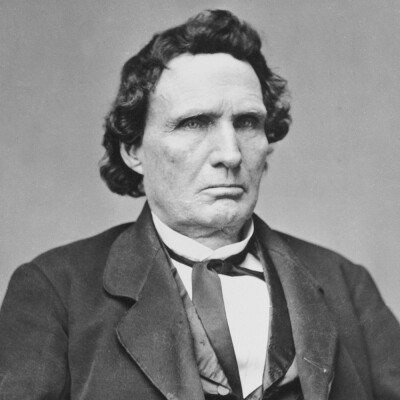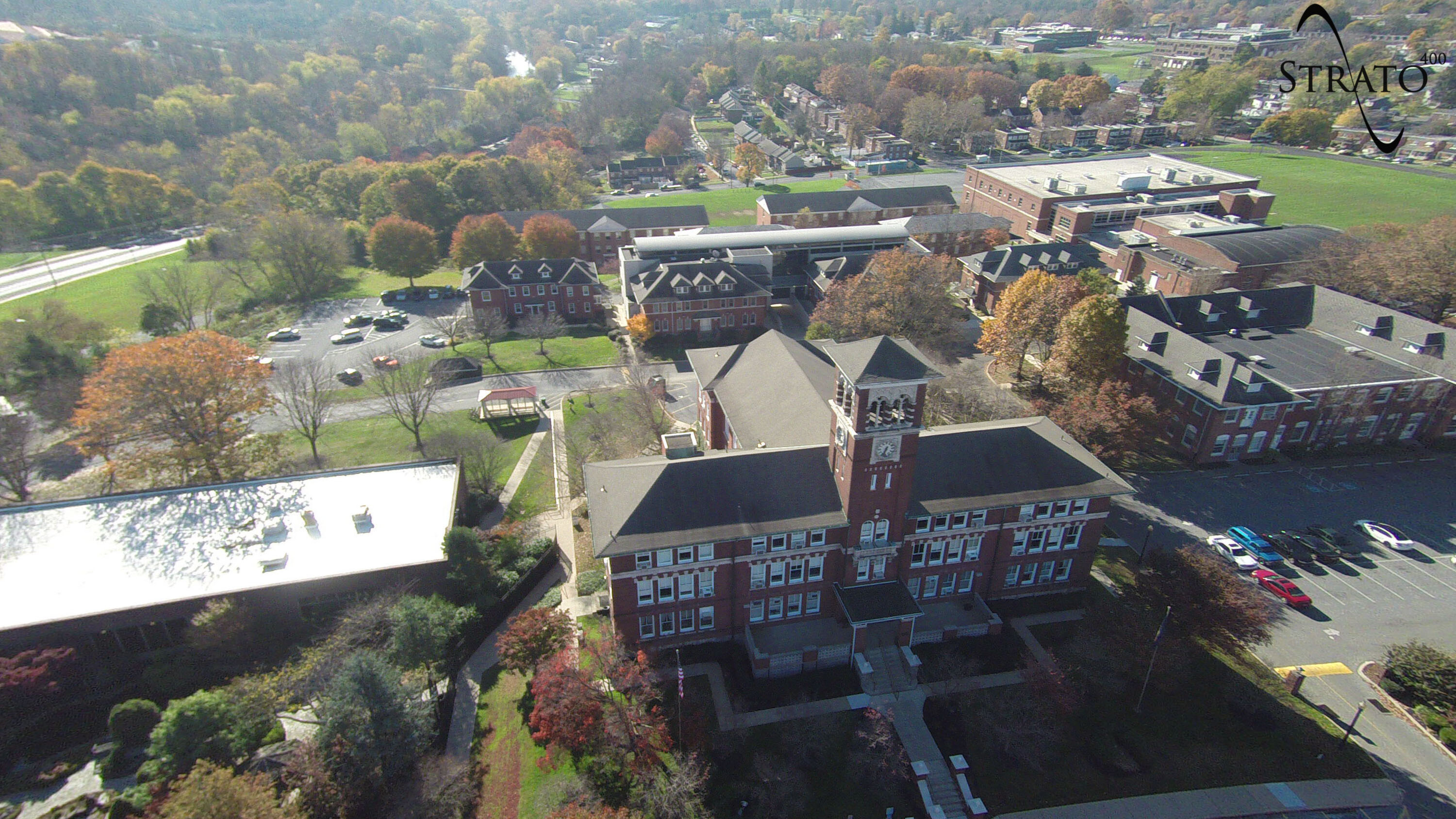About
Thaddeus Stevens College of Technology is a premier, residential, two-year, accredited technical college that prepares students for skilled employment in a diverse, ever-changing workforce. Founded in 1905 with 15 students, Thaddeus Stevens College has grown to more than 1,300 students and 24 high-skill, high-wage technical programs.
Thaddeus Stevens College of Technology requires that all students are a resident of the state of Pennsylvania and have established residency for a minimum of one year prior to applying. Exceptions regarding residency will only be granted to military veterans.
Thaddeus Stevens College of Technology was recognized by the Aspen Institute, an independent research panel, as one of the top 120 two-year colleges in the country for six consecutive years. Thaddeus Stevens College was the only two-year, technical college in Pennsylvania recognized by the Aspen Institute.
Mission Statement
Thaddeus Stevens College of Technology educates Pennsylvania's economically and socially disadvantaged as well as other qualified students for skilled employment in a diverse, ever changing workforce and for full effective participation as citizens.
Vision Statement
Thaddeus Stevens College of Technology will be the best two-year technical college of its kind by adding value to the lives of our students so that they will find skilled employment, be effective citizens, and reach their full potential.
Core Values
Thaddeus Stevens College of Technology is committed to structuring and maintaining its daily functions around the following core values: integrity, diversity, respect, teamwork, learning and growth, and accountability.
INTEGRITY: We value the commitment to high moral/ethical standards, honesty, and fairness in teaching and learning, social engagements, and professional practices.
DIVERSITY: We value the recognition of the variety of unique individuals within our world and the interdependence upon each other, each other’s culture, and the natural environment. We value the differences and respect the qualities and experiences that are different from our own.
RESPECT: We value the unbiased consideration, treatment, and regard for the rights, values, beliefs, and property of all other people.
TEAMWORK (COLLABORATION): We value working cooperatively and collaboratively as part of a group in which there is a shared mission and vision aligned toward a goal.
LEARNING AND GROWTH (LIFE-LONG LEARNING): We value the relentless dedication to increasing the knowledge and competencies of all individuals associated with the College. We recognize that human resources are the College’s only sustainable competitive advantage.
ACCOUNTABILITY: We value taking responsibility for actions and the results of those actions; honoring obligations, expectations, and requirements; delivering what is promised; and owning up to shortcomings and mistakes.
Accreditation
Thaddeus Stevens College of Technology is accredited by Middle States Commission on Higher Education.
Notice of Nondiscrimination
Thaddeus Stevens College of Technology does not discriminate on the basis of race, color, national origin, sex, disability or age in its programs or activities. Inquires may be directed to Marian V. Wilson, PhD, Chief Diversity, Equity, and Inclusion Officer and Title IX Coordinator, Thaddeus Stevens College of Technology, 750 East King Street, Lancaster, PA 17602. Phone: (717) 391-1365.
Our Founder: Thaddeus Stevens
 Thaddeus Stevens
Thaddeus Stevens
Thaddeus Stevens was born in Danville, Vermont, on April 4, 1792. He was the second of four born to parents Sarah and Joshua Stevens. Thaddeus' older brother was born with two clubfeet that made it very difficult for him to walk. In the late 1700's, any physical deformity was seen as a sign from God that the family had committed a serious secret sin. Such a deformity was called the "mark of the devil," and as a consequence, Stevens' family was ridiculed and shunned. When Thaddeus was also born with a clubfoot, it made things worse for the family.
Joshua Stevens was an alcoholic and abusive man. The family lived in poverty on a small farm. By the time Thaddeus was 12 years old, his father had abandoned the family and was killed in the War of 1812.
Sarah Stevens was a kind woman with great energy and a strong will, and she was deeply religious. She held the family together, and worked day and night. In addition to doing farm work, she did cleaning and other domestic work for people in the area. Sarah realized that the only hope for her eldest two sons was education. She scraped enough money together to enroll them in the nearby one-room Peacham School.
Thaddeus was frail, limped severely, and poor - he was teased and taunted mercilessly by others throughout his childhood. He became very shy and extremely sensitive. However, Thaddeus excelled in school. It became obvious that he had great intelligence and a special aptitude for debating. Upon completion of his education at Peacham, Thaddeus was accepted to Dartmouth College. He was the poorest student at the College, never having enough money for books or to go out and socialize with his rich classmates. As a result, he was an outcast, just as he had been throughout his childhood. Even though he was more qualified than most of his peers, he was not nominated for Phi Beta Kappa, an honors fraternity.
Thaddeus Stevens graduated from Dartmouth and accepted a teaching position at a one-room school in York, Pennsylvania. He studied law in the evenings and passed the Bar Exam in a year. He opened a practice in Gettysburg and later moved to Lancaster, becoming an instant success. In his first year, he successfully argued nine out of ten cases before the Pennsylvania Supreme Court - an unprecedented feat. Word of his ability and success spread throughout the region and he was inundated with clients. After five years he owned a house and lot, several other properties, and was able to purchase his mother a 250-acre farm with 14 cows. He said that buying her the farm was the "greatest satisfaction of his life". During the next 21 years, he would become very wealthy and known as an excellent attorney, renegade politician, and philanthropist.
In 1833, Thaddeus Stevens was elected to the Pennsylvania House of Representatives. He did not run as a Democrat, the party that dominated Pennsylvania politics, but rather as an Anti-Mason. This was a political party that opposed Free Masons or Masonry. Free Masons were an organization that included many of the most influential and prestigious men of the time, including George Washington. Anti-Masons opposed it because of its secrecy, oaths, and religious pageantry. Stevens objected to Masonry because of his personal hatred of exclusionary clubs and societies. During his time in the General Assembly, the accomplishment Thaddeus Stevens was most proud of was his effort to institute free public education. In 1830's America, there were practically no free public schools. Those that existed were found in New England and in large cities. Only affluent families could afford to send their children to school. In a few places a poor child could attend school if their parents would publicly admit poverty, however, this was very rare. When a Free School Bill was introduced in the Pennsylvania House of Representatives, Stevens became an ardent supporter. He collaborated with Governor Wolfe to get the bill passed, even though Wolfe was a Mason. However, when the legislators returned to their districts there was an uproar. People believed it was too expensive and some opposed the bill because they had their own religious schools. Over 32,000 individuals signed a petition to repeal the new legislation. The General Assembly was recalled and went into session to reconsider. The Senate quickly passed a repeal bill. The bill then went to the House. Stevens took the floor to defend the original bill - it was standing room only as most of the Senate filled the gallery. Stevens began his speech by using statistics to show how a state system of free schools was more efficient and ultimately less costly then the existing system. He said the repeal act should be called "An act for branding and marking the poor, so that they may be known from the rich and the proud." He went on, "I know how large a portion of the community can scarcely feel any sympathy with, or understand the necessities of the poor; the rich appreciate the exquisite feelings which they enjoy, when they see their children receiving the boon of education, and rising in intellectual superiority above the clogs which hereditary poverty had cast upon them....When I reflect how apt hereditary wealth, hereditary influence, and, perhaps as a consequence, hereditary pride are to close the avenues and steel the heart against the wants and rights of the poor, I am induced to thank my Creator for having, from early life, bestowed upon me the blessing of poverty."
He urged the legislators to ignore the misguided petitions and to lead their people as philosophers, with courage and benevolence. After he finished, he limped back to his seat to the cheers of the entire assembly. The House suspended the rules and amended the Repeal Bill into an act that actually strengthened the original Free School Act and passed it. The Senate immediately followed suit. The result was to give Pennsylvania a statewide free public school system an entire generation before New York, New Jersey, Connecticut, Rhode Island, and the entire South. This is why Stevens is referred to as the savior of free public education in Pennsylvania, and why the state created Thaddeus Stevens College of Technology as a tribute to Thaddeus Stevens.
This is another example of Stevens drawing from his own background and experience, and attacking privilege based on anything other than merit. Also, it reflects his fundamental belief that education is the great equalizer. He later said that if you make education inexpensive and honorable, a person with intelligence, no matter how poor, would utilize it to improve their self.
An important part of Thaddeus Stevens' legacy is his philanthropy. Throughout his life, he could never recall the poverty and discrimination of his childhood without great pain. Its effect was to sensitize him to the oppression and human suffering in the world. He simply could not bear to hear or see suffering if his money or legal aid could relieve it. He gave of them both almost without limit. He did this irrespective of race, religion, national origin, or political affiliation. Even his harshest critics said he was charitable, kind, and lavish with his money in the relief of poverty. He had standing orders with his physician and cobbler to treat all deformed and disabled children at his expense. It is impossible to estimate how much money he gave to the poor and needy or the value of the legal services he provided for free. One indicator was that at the time of his death, he had over $100,000 in notes from individuals he had loaned money to and never been repaid. In his will he left $50,000 to establish a school for the relief and refuge of homeless, indigent orphans. This original bequest has evolved into Thaddeus Stevens College of Technology. His will stated "They shall be carefully educated in the various branches of English education and all industrial trades and pursuits. No preference shall be shown on account of race or color in their admission or treatment. Neither poor Germans, Irish or Mahometan, nor any others on account their race or religion of their parents, shall be excluded. They shall be fed at the same table."
The defense of runaway or fugitive slaves gradually began to consume the greatest amount of his time, until the abolition of slavery became his primary political and personal focus. He was actively involved in the Underground Railroad, assisting as many as 16 runaway slaves a week to get to Canada.
Thaddeus Stevens was elected to the United States House of Representatives from 1849 to 1853, and from 1859 until his death in 1868. This was the period leading up to and including the Civil War and the beginning of Reconstruction. During this time, Stevens became the most powerful congressman in Washington. He chaired the House Ways and Means Committee and later the Appropriations Committee. He was responsible for funding the war effort and later Reconstruction. His goals during this period were: (1) the abolition of slavery; (2) full legal rights irrespective of race; (3) voting rights irrespective of race; (4) and he wanted the result of Reconstruction to be the empowerment of African Americans by redistributing power and wealth in the South.
Stevens' legislative legacy is the 13th, 14th, and 15th amendments to the Constitution, which serve as the basis for all Civil Rights legislation.
Stevens drafted his own version of the 13th Amendment, but when it failed to gain support, he shepherded a more popular version through Congress. It ended slavery in all states, whereas the Emancipation Proclamation only abolished slavery in the Confederacy.
Stevens also guided the 14th Amendment through Congress. This amendment established a national citizenry with all citizens given equality before the law, which no state could alter. He was disappointed because the amendment still made references to males only, allowed states to restrict voting rights based on race, and allowed confederates to vote.
Stevens' disappointment in the shortcomings of the 14th Amendment paled in comparison to his outrage over the failure of Reconstruction at the end of the Civil War. He wanted the wealthy white political power structure of the South to be dismantled and redistributed. He proposed every black free man should receive 40 acres and a mule, and that Confederates should not be allowed to vote immediately. Unfortunately, any chance of Stevens' vision becoming a reality was lost when Lincoln was assassinated and Andrew Johnson, the Vice President, became President.
Stevens hated Johnson and worked to have him impeached. While the final vote fell one vote short in the Senate, Johnson was permanently weakened and reduced to a figurehead for the remainder of his term, being replaced by Ulysses Grant in 1868.
Stevens did not live to see the passage of the 15th Amendment, however most would agree that at the very least he inspired it. The amendment guaranteed all male citizens the right to vote.
Thaddeus Stevens died on August 11, 1868. The public expression of grief in Washington was second only to Lincoln's. His coffin lay in State at the Capitol Rotunda, flanked by a Black Union Honor Guard from Massachusetts. Twenty thousand people, one-half of whom were black free men, attended his funeral in Lancaster. He chose to be buried in the Shreiner-Concord Cemetery because it was the only cemetery that would accept all races. He wrote the inscription on his head stone, which reads: "I repose in this quiet and secluded spot, not from any natural preference for solitude, but finding other cemeteries limited as to race, by charter rules, I have chosen this that I might illustrate in my death the principles which I advocated through a long life, equality of man before his Creator."
Stevens dreamed of a socially just world, where unearned privilege did not exist. He understood from his own personal experience that being different or having a different perspective can enrich society. He knew that differences among people should not be feared or oppressed, but celebrated. Thaddeus Stevens College of Technology is a living monument to our founder's legacy. As such, the College continually strives to provide under privileged individuals with opportunities and to create an environment in which individual differences are valued and nurtured.

